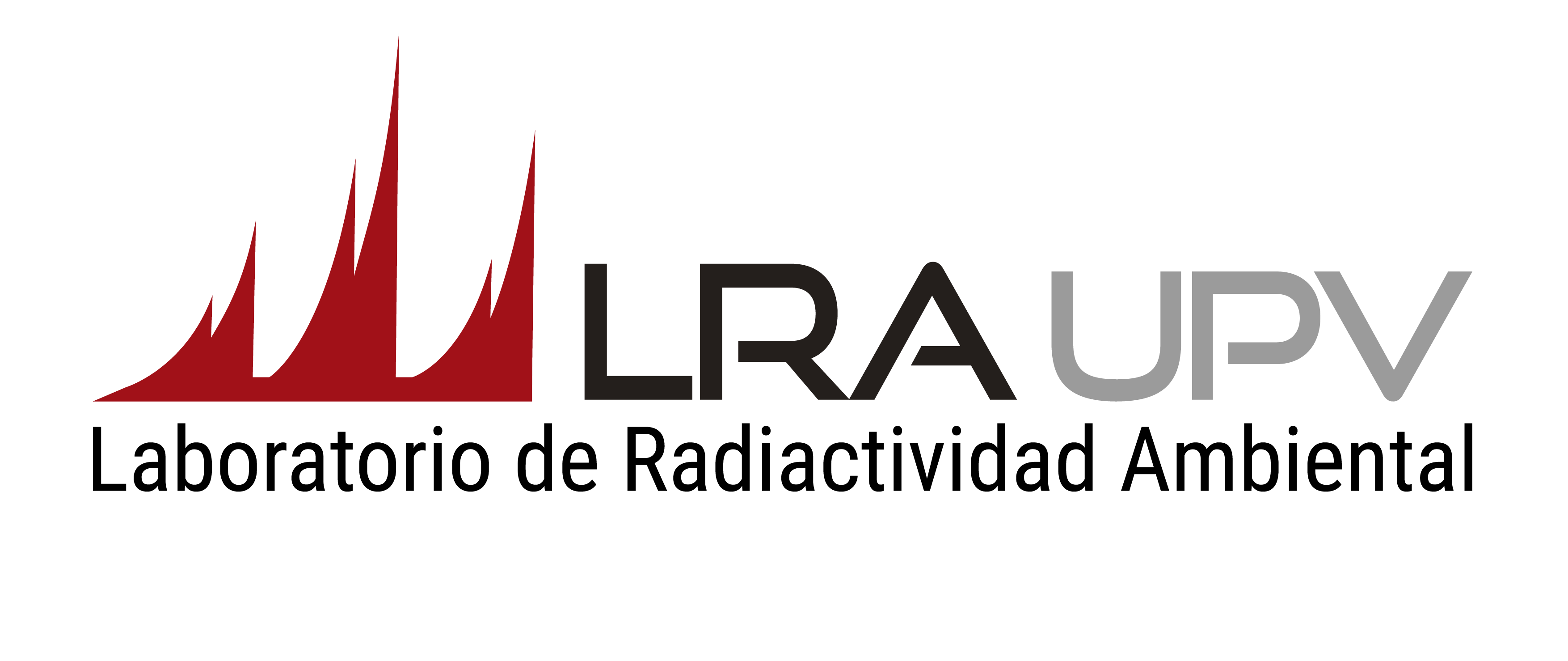Environmental Radiological Surveillance
 The LRA-UPV carries out environmental radiological surveillance at the Polytechnical University of Valencia and forms part of the Spanish Nuclear Safety Council’s Network of Sampling Stations. It is a nationwide radiological monitoring network that provides information on the levels of radioactivity in the air, water and soil, in basic foods such as milk, and in a complete diet or typical diet. In addition, the LRA-UPV participates in the quality control of the Environmental Radiological Surveillance Plan (P.V.R.A.) in the surroundings of the Cofrentes Nuclear Power Plant thanks to an agreement with the Generalitat Valenciana.
The LRA-UPV carries out environmental radiological surveillance at the Polytechnical University of Valencia and forms part of the Spanish Nuclear Safety Council’s Network of Sampling Stations. It is a nationwide radiological monitoring network that provides information on the levels of radioactivity in the air, water and soil, in basic foods such as milk, and in a complete diet or typical diet. In addition, the LRA-UPV participates in the quality control of the Environmental Radiological Surveillance Plan (P.V.R.A.) in the surroundings of the Cofrentes Nuclear Power Plant thanks to an agreement with the Generalitat Valenciana.
Radiological surveillance in nuclear or radiological emergencies
 Within the field of Radiological Protection, it is of special interest to have protocols for emergency response in case of nuclear and radiological emergencies. In relation to radioactive facilities, the Valencian Community has a Special Plan for Radiological Risk (PERR) (DECREE 114/2013) in which the LRA-UPV acts as a support laboratory for the Valencian Agency for Safety and Emergency Response (AVSRE). In parallel, the LRA-UPV is working on the development of rapid procedures for radiological monitoring in emergencies. It also collaborates with the University of Barcelona in the development of emergency procedures using plastic scintillators.
Within the field of Radiological Protection, it is of special interest to have protocols for emergency response in case of nuclear and radiological emergencies. In relation to radioactive facilities, the Valencian Community has a Special Plan for Radiological Risk (PERR) (DECREE 114/2013) in which the LRA-UPV acts as a support laboratory for the Valencian Agency for Safety and Emergency Response (AVSRE). In parallel, the LRA-UPV is working on the development of rapid procedures for radiological monitoring in emergencies. It also collaborates with the University of Barcelona in the development of emergency procedures using plastic scintillators.
Natural radiation (NORM and Radon)
 Spanish legislation requires monitoring the exposure to natural radiation. Therefore, it is necessary to assess the radiological impact of NORM (Naturally Occurring Radioactive Materials) industries and underground or thermal workplaces with the presence of Radon. The LRA-UPV carries out radiological impact studies of NORM industries and workplaces with Radon presence following the Nuclear Safety Council safety guidelines (GS-11.03 and GS-11.04) and analyses natural radionuclides in materials, water or air samples, which can produce exposures of the public or workers. It is also working on improving the procedures for sampling, analysis and measurement of the radioactivity of suspended dust present in industries such as ceramics, refractories, pigments, etc.
Spanish legislation requires monitoring the exposure to natural radiation. Therefore, it is necessary to assess the radiological impact of NORM (Naturally Occurring Radioactive Materials) industries and underground or thermal workplaces with the presence of Radon. The LRA-UPV carries out radiological impact studies of NORM industries and workplaces with Radon presence following the Nuclear Safety Council safety guidelines (GS-11.03 and GS-11.04) and analyses natural radionuclides in materials, water or air samples, which can produce exposures of the public or workers. It is also working on improving the procedures for sampling, analysis and measurement of the radioactivity of suspended dust present in industries such as ceramics, refractories, pigments, etc.
Radioecology
 Radioecology studies the interaction of radionuclides in the environment, their migration and uptake mechanisms in food chains and ecosystems. One application is the dating of sediments or other environmental samples (water, vegetation, etc.) with the measurement of artificial isotopes such as Cs-137, Pb-210 and Pu-239, whose origin is anthropogenic. In relation to this, the LRA-UPV participates in different research projects in collaboration with national and international universities.
Radioecology studies the interaction of radionuclides in the environment, their migration and uptake mechanisms in food chains and ecosystems. One application is the dating of sediments or other environmental samples (water, vegetation, etc.) with the measurement of artificial isotopes such as Cs-137, Pb-210 and Pu-239, whose origin is anthropogenic. In relation to this, the LRA-UPV participates in different research projects in collaboration with national and international universities.
